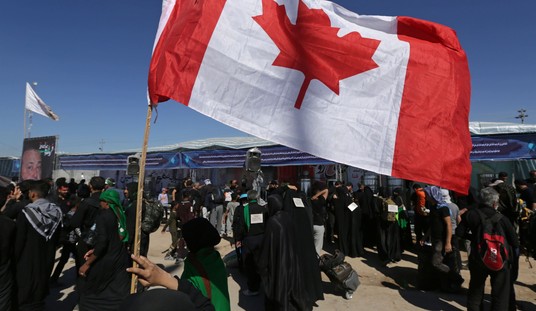Barack Obama insisted during the presidential campaign that he would adjust American tax policies so that the rich paid their “fair share.” He defended himself against charges of redistributionism, claiming that all he wanted to do was to restore balance to the tax code and help lower-end wage earners get a break. Ari Fleischer looks at the actual data on revenue sources from the Congressional Budget Office and comes to a much different conclusion about Obama’s policies — and the danger of excessive exemptions:
A very small number of taxpayers — the 10% of the country that makes more than $92,400 a year — pay 72.4% of the nation’s income taxes. They’re the tip of the triangle that’s supporting virtually everyone and everything. Their burden keeps getting heavier.
As a result of the 2001 tax cuts enacted by a bipartisan Congress and signed by President George W. Bush, the share of taxes paid by the top 10% increased to 72.8% in 2005 from 67.8% in 2001, according to the latest data from the Congressional Budget Office (CBO).
Contrary to the myth that Mr. Bush cut taxes only for the wealthy, the 2001 tax cut reduced taxes for every income-tax payer in the country. He reduced the bottom tax rate to 10% from 15% and increased the refundable child tax credit to $1,000 from $500 per child, both cuts that President Barack Obama says we should keep. In so doing, millions of lower income taxpayers were removed from the tax rolls, shifting the remaining burden to those at the top, even after their taxes were cut.
According to the CBO, those who made less than $44,300 in 2001 — 60% of the country — paid a paltry 3.3% of all income taxes. By 2005, almost all of them were excused from paying any income tax. They paid less than 1% of the income tax burden. Their share shrank even when taking into account the payroll tax. In 2001, the bottom 60% paid 16.3% of all taxes; by 2005 their share was down to 14.3%. All the while, this large group of voters made 25.8% of the nation’s income.
When you make almost 26% of the income and you pay only 0.6% of the income tax, that’s a good deal, courtesy of those who do pay income taxes. For the bottom 40%, the redistribution deal is even better. In 2001, these 43 million Americans, who earn less than $30,500, made 13.5% of the nation’s income but paid no income tax. Instead, they received checks from their taxpaying neighbors worth $16.3 billion. By 2005, those checks totaled $33.3 billion.
We noted this problem during the campaign. The Tax Foundation did an analysis of the effects of the tax policies espoused by both presidential candidates in October. McCain’s proposal would have exempted almost 40% of Americans from paying federal taxes, while Obama’s made it almost half:

Why is this a problem? It makes half of the nation dependent on the other half, and not just in “refundables”. If we’re really talking about “fair shares,” then every citizen would pay some part in funding the government that represents all of us. Without that, the people who wind up paying federal income tax have a good argument for “no representation without taxation,” as the policies enacted by Congress get funded entirely by the tax-paying class and increasingly for the benefit of the non-taxpaying class.
I suspect that’s by design and not by accident. After all, how much easier does that make it for politicians to promise all sorts of benefits to voters, who never have to share in the cost?
I have no problem paying taxes, as long as they’re reasonable and my fellow citizens share in the burden as much as they share in the benefits of our nation. The kind of disconnect shown in this article and the CBO analysis is dangerous for rational self-government.








Join the conversation as a VIP Member